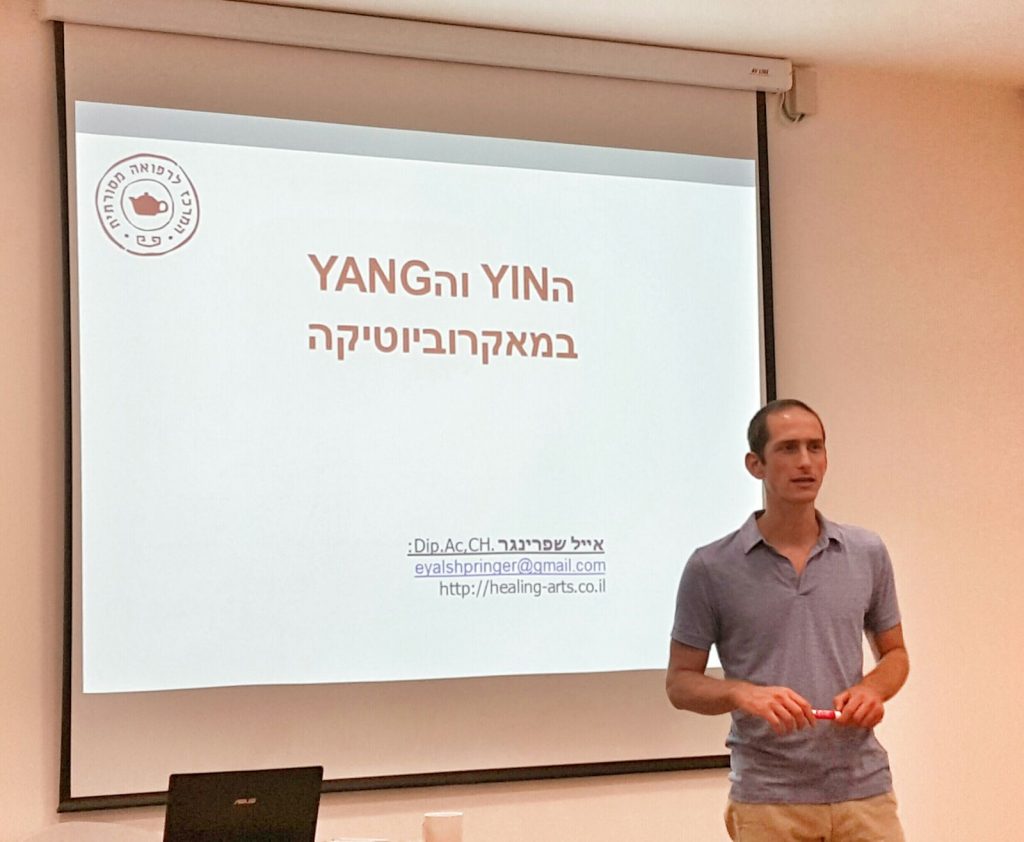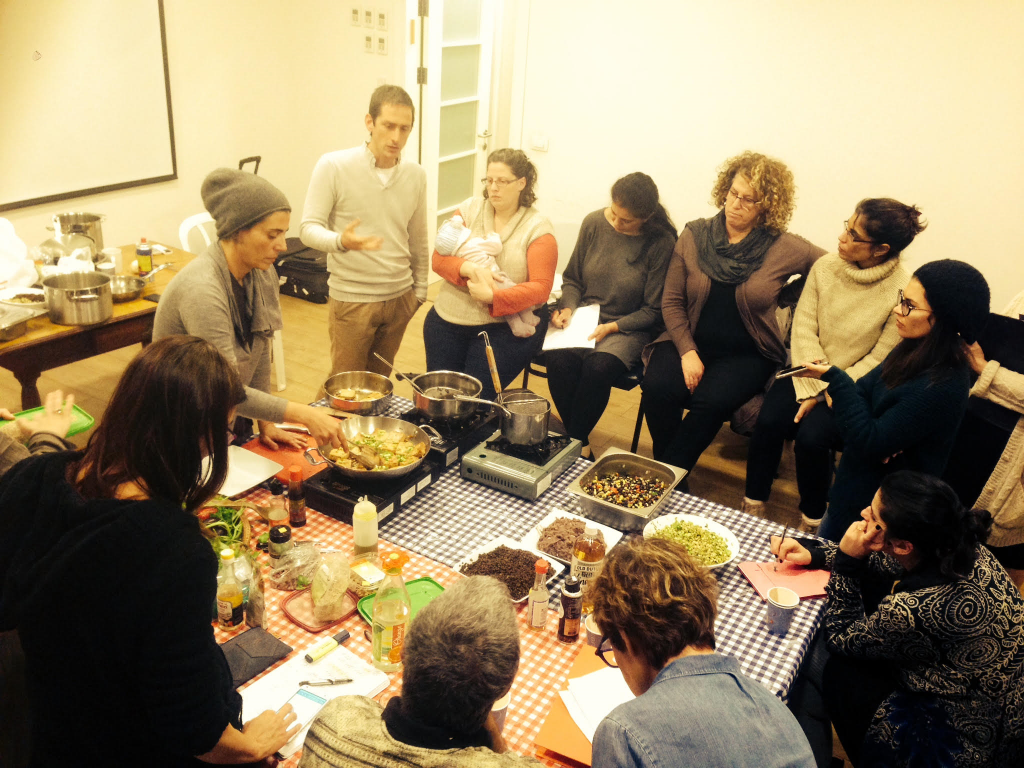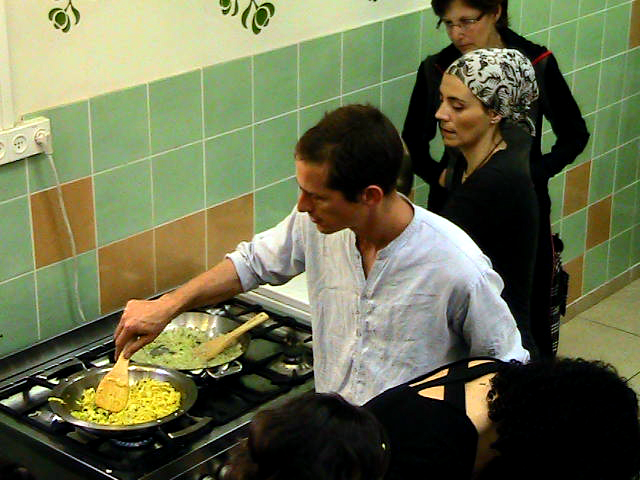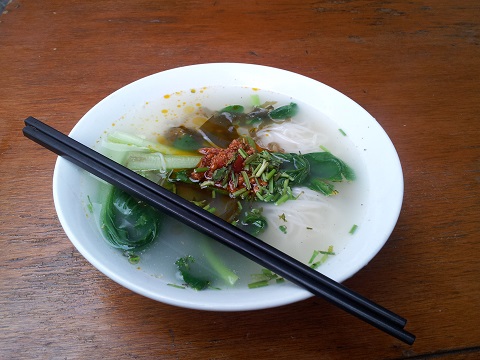Nutrition Course for Practitioners
186 hours of study
Kibbutz Beit Nir
The course opens on October 22
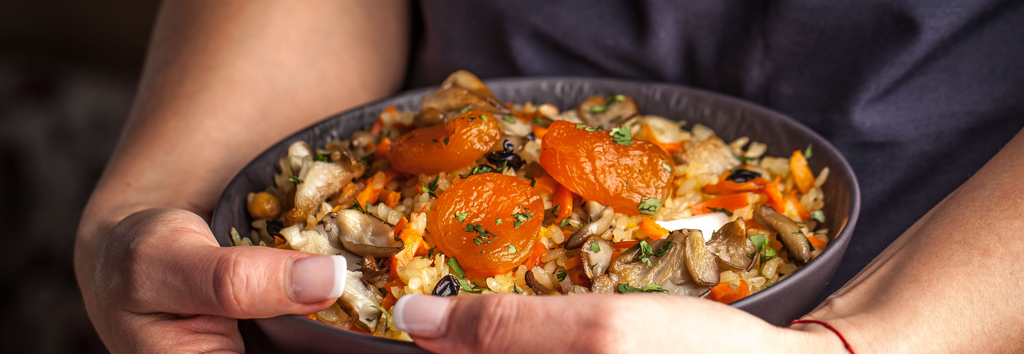
Know that nutrition does the work for you even when the patients are at home
- Improve patient recovery rates
- Feel more confident in selecting food items
- Know how to adjust nutritional care to the patient and disease
- Feel confident in addressing complex clinical situations
- Recognise the power of medicinal spices and beverages
- Diagnose the patients from the moment they enter the clinic
- Acquire a more holistic view on nutrition and let go of narrow nutrition methods and fashions
- Enjoy a unique and intensive experience with Eyal Shpringer
- Continue to receive support even as a graduate of this course. Join our learning community of graduates
What will you know by the end of the course?
- You will acquire face and body diagnosis skills that are highly relevant for applying nutritional treatment and for assessing the health, mental and emotional tendencies of the person in front of you
- You will be able to analyse patients’ nutrition quickly and to conclude from the nutrition diet on the patient’s condition
- You will have familiarised yourself with the medicinal qualities and uses of various foods according to an integrated approach established on different healing traditions
- You will know how to address your patients and help them initiate significant changes in their lifestyle.
- You will have learned how to treat various body systems and the traditional therapeutic approaches to common diseases.
- You will have recognised the connection between food, lifestyle and mental/emotional state
- Improve your own well-being by applying traditional medical nutrition methods in your own life
Eyal lectures in the first class of the nutrition course for TEF therapists.
Detailed information about the course.
Nutritional therapy is essential for successfully dealing with various conditions such as cancer, diabetes, respiratory diseases, liver disease, digestive problems, allergies and other medical issues. However, many therapists today find it challenging to fully understand nutritional treatment including diagnosis, selection of appropriate raw materials, convincing the patient, and reaching recovery.
The TEF Method Nutrition Course is established on the integration of traditional medical traditions such as Chinese Medicine, Ayurveda, Macrobiotics and modern research. The course is designed to fill a gap in the therapeutic field and to assist practitioners in coping with a variety of challenging medical conditions while supporting their patients through time and since proven nutritional tools.
The nutritional treatment enables patients and their families to become deeply involved in the healing process. Acquiring this knowledge also offers the practitioners an opportunity to implement the knowledge in their lives and gain benefits from experience with this approach. The course enables therapists to engage in a new treatment method that significantly increases effectiveness and deepens the strength of the therapeutic relationship and the patients’ esteem of their practitioners.
For whom is the course for nutritional therapists?
The course is intended for therapists only, graduates of Chinese medicine, naturopathy, herbal medicine, Ayurveda, clinical nutritionists, and physicians. Students without a background in Chinese medicine will require a paid supplementary lesson.
Eyal Springer and Jessica Halperin teach traditional cooking.
Eyal Shpringer and Jessica Halperin teach traditional cooking.
The certificate:
Graduates of the course will receive a Certificate of Specialization in Traditional Nutrition from the Traditional Energetics of Foods (TEF).
Eyal Shpringer MSc Dip.Ac, CH
Eyal is an expert in ancient Chinese medicine (Stems & Branches), in Chinese macrobiotic diet, and a clinical herbalist. A former director of The Center of Complementary and Integrative Medicine, Oncology Division, Tel Aviv Sourasky Medical Center (Ichilov), Israel. Eyal worked as a senior teacher for Tuina and Chi Kung at the Broshim Campus – Tel Aviv University and also worked as a teacher of Chinese nutrition in the ancient Chinese medicine program at the Faculty of Agriculture in Rehovot. He studied macrobiotic nutrition under the guidance of Dr. Mira Nizov and Ayurvedic diet under the guidance of therapist Philip Lombard. Eyal is a graduate of the MSc program in Advanced Oriental Medicine (research and practice) of the northern college of acupuncture (NCA) in partnership with Middlesex University, London.
Eyal is the founder of the TEF method for nutrition and traditional medicine and applies the nutrition method in his personal life and clinical work.
The contents of the course:
Semester 1: “Traditional medicine nutrition from A to Z”
This is the first stage of the nutrition course. The goal of this stage is to provide the background theory and therapeutic tools from the medical traditons of Chinese medicine, the Macrobiotic nutrition and Ayurveda.
Semester one content:
- Theory of Chinese diet and Macrobiotics
- Chinese and Macrobiotic facial and body diagnosis, add with nutrition adjustment according to diagnosis (including classroom practice)
- The therapeutic properties of food according to the traditional approaches: an advanced level for therapists.
- Traditional food processing techniques for creating poultices and homemade medicinal recipes
- Applying research-based knowledge in the field of nutrition and translating it into the language of the traditional medicines
- Medicinal use of spices, Macrobiotic condiments, Chinese herbs and local Mediterranean plants
- Practical cooking lessons
Semester two: “The nutritional treatment in the clinic”
This semester is mainly aimed at the clinical application of knowledge. This stage focuses on acquiring skill by learning structured strategies to treat a variety of diseases and conditions. The study of these strategies is based on a combination of nutritional treatment, lifestyle guidelines, herbs in food and beverages and external applications.
We will learn how to adjust diet according to differential diagnosis, the characteristics of the disease in its various stages and will include relevant case studies that shed light on the personal difficulties of the patients in dealing with the need to implement the nutritional guidelines.
Due to the increase in the scope of knowledge accumulated from year to year, it is not possible to learn all the treatment strategies. Therefore, the second semester focuses on strategies that are selected from the list below. Those interested in continuing studies can join a second year of advend studies.
Contents that always appear in the second semester:
- Treatment of the Earth organs and various conditions of the digestive system (fatigue, loss of appetite, fullness, constipation, diarrhoea)
- Treatment of the Wood organs and various conditions of the liver and gallbladder (blood loss, types of stasis, phlegm, heat)
- Treatment of the Water organs and various conditions of the kidneys and the adrenal glands
- Treatment of the Metal system: treatment of acute and chronic conditions of the respiratory system
- Working with the patient: moving into action, dealing with resentment, handling the treatment’s structure, using diagnostic forms, menu building methods, illustration of ideas, supporting the patient’s learning process
- Additional approaches for adjusting the treatment according to Ayurveda and Greek-Arabic medicine
- Discussion of case studies related to the treatment strategies being studied
- Performing nutritional counselling sessions under instruction in the lesson.
- The principles of building medical dishes suitable for specific pathologies according to Chinese medical nutrition, Macrobiotics Ayurveda and over traditional treatment methods
- Cooking demonstrations relevant to the material studied
Eating thistle on a field trip.
Additional optional content for the second year of study:
- The treatment of blood and lymphatic diseases
- Treatment of autoimmune conditions and allergies
- Male Health: Impotence, BPH, Prostatitis
- Cardiovascular diseases: general treatment of cardiovascular conditions according to YIN / YANG principles. Treatment of varicose veins, hypertension, dyslipidemia and bleeding
- Childhood nutritional therapy: nutrition of children according to developmental stages, treatment of common childhood diseases and development difficulties
- Strategies for the treatment of Crohn’s and colitis, ulcers, diabetes, haemorrhoids, mouth diseases, intestinal parasites
- Neuropsychology: approaches to the treatment of the nervous system; treatment of depression, mania, forgetfulness, lack of concentration, paralysis, Parkinson’s and Alzheimer’s.
- Women’s health: Supporting the woman through nutrition; fertility, pregnancy, breastfeeding and postnatal care. Difficulties related to menstruation: amenorrhea, PMS, menopause
- The treatment of cancer: the different nutritional approaches for treating the various stages of the disease, reference to specific cancers (a separate course).
- Dermatology: The approach to treating pathological conditions of the skin and hair
- Treatment of the metabolic syndrome: weight loss treatments and weight gain encouragement, hypertension, atherosclerosis.
- Treatment of the thyroid: The nutritional approach to treating thyroid problems
- Fatigue and weakness: Treatment for fatigue, weakness or weakness of the immune system.
- Orthopaedics and rheumatism: adapting nutrition to different orthopaedic conditions such as gout, arthritis, rheumatoid arthritis, osteoporosis, differential diagnosis strategy.
- Adapting nutrition in the spirit of the stems and branches method.
Looking forward to meeting you at the dining table! Eyal Springer and the teaching staff.
For registration and further information, please contact Eyal Springer at +972-523904332 or eyalshpringer@gmail.com
